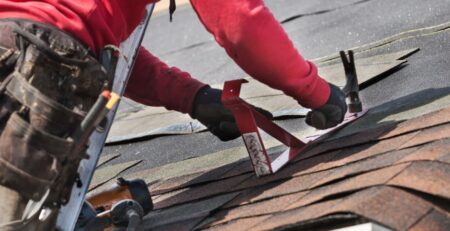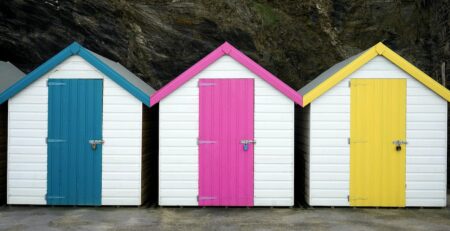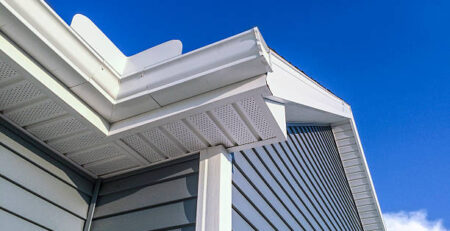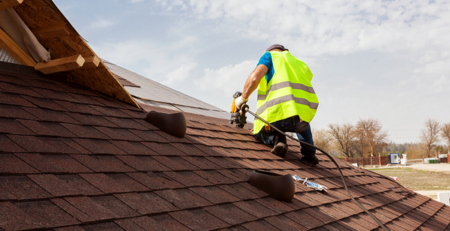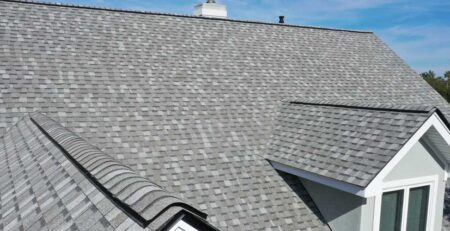Best Roofing Materials For Coastal Homes
When considering roofing options for coastal homes, prioritize durability against high winds, salt exposure, and frequent storms. Professional roofing services offer a range of materials tailored to withstand coastal conditions. Asphalt shingles, known for their resilience and practicality, excel in withstanding wind, saltwater, and sunlight. Metal roofing is another excellent choice, renowned for its robustness in harsh climates, corrosion resistance, and energy efficiency. Clay tiles provide traditional elegance, durability, and thermal regulation. When installed with care and maintained correctly by professional roofing services, these materials guarantee long-term protection against coastal elements. When selecting roofing materials for your coastal home, prioritize those with high hurricane resistance to ensure longevity and strength, safeguarding your home against the challenges of coastal living.
Factors to Consider for Coastal Roofs
When choosing roofing materials for coastal homes, factors such as high winds, salt exposure, and frequent storms must be considered. Saltwater can significantly impact roofs, leading to corrosion and deterioration of certain materials over time.
Therefore, selecting materials with high hurricane resistance is vital to guarantee the longevity and durability of the roof. Coastal areas are more prone to extreme weather conditions, so choosing roofing materials that can withstand strong winds and heavy rains is imperative. By prioritizing hurricane resistance in our selection, we can better protect coastal homes from the potential damage caused by saltwater exposure and severe storms.
Asphalt Shingles: A Coastal Favorite
Considering the demands of coastal environments, asphalt shingles emerge as a favored choice for their resilience and practicality in safeguarding homes against the elements. The durability of asphalt shingles makes them well-suited for coastal regions, where they can withstand high winds, saltwater exposure, and intense sunlight. Essential installation techniques are vital to maximize their effectiveness in coastal climates. Other roofing types commonly found in such areas include metal roofing, which offers durability and resistance to corrosion, and synthetic slate, which provides both aesthetic appeal and durability against harsh coastal conditions.
Ensuring a secure attachment to the roof deck and using appropriate sealants can help prevent damage from saltwater corrosion and extreme weather conditions. Moreover, regular inspections and maintenance can prolong the lifespan of asphalt shingles in coastal areas. Their cost-effectiveness, ease of installation, and proven track record make asphalt shingles a popular roofing material for coastal homes.
Metal Roofing: Strength in Coastal Climates
Metal roofing stands out as a robust and reliable choice for coastal homes due to its exceptional durability and resilience to harsh coastal climates. Its corrosion resistance is key in coastal areas where salt air can accelerate the deterioration of other roofing materials. Metal roofs also improve energy efficiency, reflecting the sun’s rays to keep the home cooler and reduce energy costs.
Moreover, these roofs are lightweight yet incredibly strong, ideal for areas prone to strong winds and storms. With proper installation and maintenance, metal roofing can last for decades, offering coastal homeowners long-term protection and peace of mind.
Clay Tiles: Traditional Elegance by the Sea
Nestled along coastal homes, clay tiles exude traditional elegance that harmonizes perfectly with serene sea views. Their timeless appeal and durability make them a popular choice for coastal properties seeking a mix of conventional craftsmanship and coastal charm. Clay tiles often handcrafted with traditional techniques, offer a sophisticated yet earthy look that complements the coastal environment.
These tiles are known for their ability to withstand harsh coastal climates, resisting saltwater corrosion and high winds. Their natural thermal properties also help regulate indoor temperatures, making them energy-efficient. When properly installed and maintained, clay tiles can last for decades, adding beauty and value to coastal homes.



